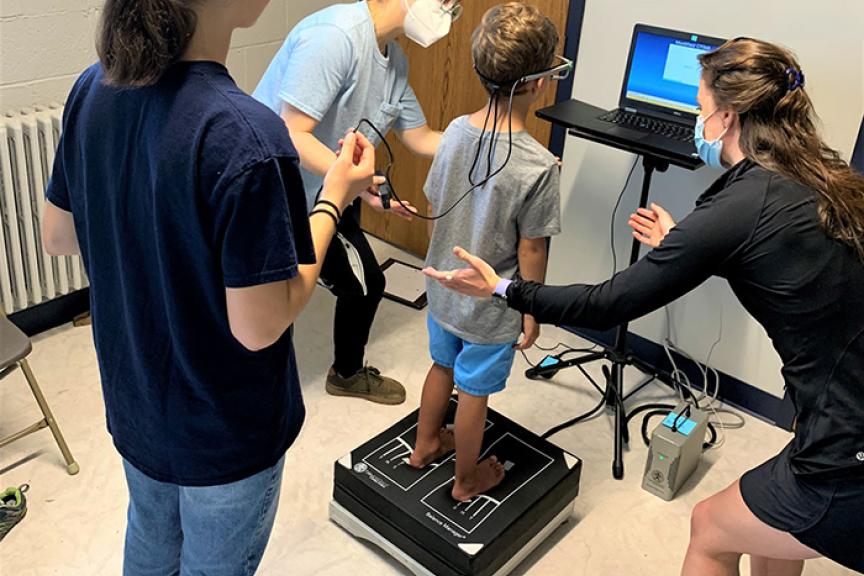
 Back to Motor & Visual Development Laboratory
Back to Motor & Visual Development Laboratory
Reliability of community-based balance testing in early childhood

The purpose of this project is to learn whether low-cost, portable systems are reliable for testing balance of autistic and neurotypical children in community settings.
The project includes children from 3 to 7 years of age who are autistic or neurotypical.
Who can participate?
- Children aged 3-7 years
- Children who are autistic and children who are neurotypical
- Children who can stand without assistance
- Children who can follow 1-2 step directions (e.g., “Stand still, look here.”)
Do you pay participants?
Yes! Participants’ caregivers are paid $50 upon completion of 4 visits over the course of 8 weeks.
What is required?
- Visits 1 and 4 take approximately 1 hour, Visits 2 and 3 take approximately 20 minutes.
- Visits 2-4 occur at 2 weeks, 5 weeks, and 8 weeks after Visit 1.
- Usually, visits take place at the U-M School of Kinesiology Building (830 N. University Ave., Ann Arbor). Some visits can take place in the community at clinics, schools, or in homes. We can work with you to find the best fit for your needs.
- Children will complete two tasks while standing on a portable metal plate that measures their balance: standing still with eyes open and eyes closed, and a game where they lean to move a user-controlled object on a screen to hit targets. Caregivers will complete several questionnaires about development and movement. Descriptions and pictures that explain what to expect can be found in our visitors guide.
Interested? Fill out our contact form, and a member of the research team will be in touch!
Faculty